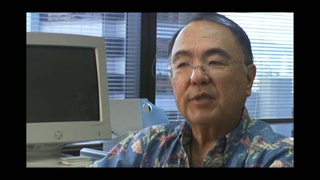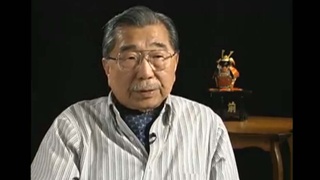Interviews
Trick in developing the film
What they did was they didn’t know anything about the internment experience. I mean they were so ignorant, they wanted Toshiro Mifune in there and so forth. And they said, “Oh well, do those people speak English?” You know, it was that kind of ignorance. And they wanted, of course, a White lead. They wanted Louis Frizel to be the lead and that’s why we had to put Gretchen in there. She was great, but we had to have a White woman in there, so that story was made up, that love story, you know.
Some of the things we had to do in order to get it even past the first round. But what John did is – he’s so smart – he showed them one script and then we worked on another script. And they didn’t know the difference. So we really patted down those other leads.
Date: December 27, 2005
Location: California, US
Interviewer: John Esaki
Contributed by: Watase Media Arts Center, Japanese American National Museum
Explore More Videos

Being an American soldier and an "enemy alien"
(1923-2011) Lawyer, MIS veteran, founder of Francis and Sarah Sogi Foundation

Not relating to Japan Americans' experiences on the mainland
(1923-2011) Lawyer, MIS veteran, founder of Francis and Sarah Sogi Foundation


Living conditions in prison while serving time for resisting the draft
(b. 1925) Draft resister

Talking to children about decision to resist the draft during World War II
(b. 1925) Draft resister

Reflecting on Japanese Americans' response to incarceration
(b. 1925) Draft resister


Thoughts on relationship between Japanese Peruvians and Japanese Americans at Crystal City, Texas
(1937 - 2021) Teacher

Father interrogated by FBI, but not taken away
(1925 - 2018) Nisei educator from Hawai‘i

The political effects on Nikkei during the war (Spanish)
(b. 1950) Nisei Chilean, Businessman

Government sold Japanese Canadian properties for little money
(b. 1928) Doctor. Former Chair of the Japanese Canadian Redress Foundation.

Questioning Curfew
(1918-2012) Fought the constitutionality of Executive Order 9066.

Challenges of finding a summer job
Judge, only Japanese American to serve on CWRIC.


